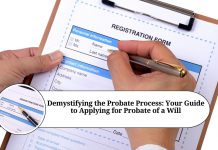What is Property Dividend: Understanding the Basics
As an investor, you may have come across the term “property dividend” and wondered what it means. In this blog, we will explore what property dividend is, how it works, and its advantages and disadvantages.
What is Property Dividend?
A property dividend is a type of dividend payment made by a company to its shareholders in the form of a non-cash asset, such as property, instead of cash. Essentially, the company distributes its assets to shareholders instead of paying them in cash.
How Does Property Dividend Work?
To issue a property dividend, a company first needs to determine the fair market value of the asset it intends to distribute. Once the value is determined, the company will issue a certain number of shares to each shareholder, based on their percentage ownership of the company.
For example, let’s say a company has 100,000 shares outstanding, and you own 1,000 shares. The company decides to issue a property dividend in the form of a building it owns that is valued at $1 million. Your share of the property dividend would be calculated as follows:
1,000 shares / 100,000 total shares = 1% ownership of the company 1% ownership of the $1 million building = $10,000 worth of property dividend
So in this example, you would receive a property dividend worth $10,000, which would be recorded on your balance sheet as an increase in assets and a decrease in retained earnings.
Advantages of Property Dividend
One advantage of property dividend is that it allows companies to distribute assets to shareholders without having to sell them, which can result in taxes and fees. Additionally, property dividends can be used as a way for companies to reduce their retained earnings and avoid certain tax liabilities.
For shareholders, property dividends can be advantageous because they may receive assets that have the potential to appreciate in value, such as real estate or intellectual property.
Disadvantages of Property Dividend
One disadvantage of property dividend is that it can be difficult for shareholders to value non-cash assets. Additionally, property dividends may not be as attractive to some shareholders as cash dividends, as they may prefer to receive cash that they can use as they see fit.
Furthermore, property dividends can also result in tax liabilities for shareholders, as they are treated as taxable income based on the fair market value of the assets received.
Benefits of Property Dividend for Companies
Property dividends can provide several benefits to companies, such as reducing their retained earnings, which can lower their tax liabilities. When companies pay dividends in cash, they may have to pay taxes on the money they distribute. However, when they distribute assets instead of cash, they can avoid these taxes.
Additionally, property dividends can help companies manage their assets. If a company has a property that is no longer needed or that is not generating enough income, it can distribute it to its shareholders instead of selling it. This can help the company free up cash or other resources that it can use to grow its business or invest in other opportunities.
Benefits of Property Dividend for Shareholders
For shareholders, property dividends can provide several benefits, such as giving them the opportunity to own assets that they may not have been able to afford or access otherwise. For example, if a company distributes a property in a desirable location, shareholders can potentially benefit from its appreciation over time.
Property dividends can also help diversify shareholders’ portfolios. Instead of holding only stocks or cash, shareholders can own a variety of assets, such as real estate or intellectual property, which can provide protection against market volatility.
Another benefit of property dividends is that they can be tax-efficient for some shareholders. If a shareholder receives a property dividend and then sells the asset, they may be subject to capital gains taxes. However, if the shareholder holds onto the asset and sells it later, they may be able to defer the taxes or take advantage of other tax benefits.
Drawbacks of Property Dividend for Companies
One of the drawbacks of property dividends for companies is that they can be more complicated and time-consuming to issue than cash dividends. Companies must determine the fair market value of the assets they intend to distribute, which can be difficult and may require outside experts.
Another drawback of property dividends is that they can be less predictable for shareholders than cash dividends. While companies may have a regular schedule for issuing cash dividends, property dividends may only be issued when the company has an asset to distribute.
Drawbacks of Property Dividend for Shareholders
One of the main drawbacks of property dividends for shareholders is that it can be difficult to value non-cash assets. This can make it challenging for shareholders to determine whether the property dividend they receive is a fair value for their ownership in the company.
Additionally, property dividends may not be as useful for some shareholders as cash dividends. For example, if a shareholder needs cash to pay bills or make investments, a property dividend may not be helpful.
Conclusion
Property dividends are a unique type of dividend payment that can offer both benefits and drawbacks for companies and shareholders. While they can be tax-efficient and provide diversification opportunities for shareholders, they can also be more complicated to issue and less predictable than cash dividends. As always, investors should carefully consider the pros and cons of any investment decision before making a move.
Read more useful content:
Frequently Asked Questions (FAQs)
What is a property dividend?
A property dividend is a type of dividend payment made by companies to their shareholders in the form of non-cash assets, such as property or intellectual property, instead of cash.
How is the value of a property dividend determined?
The value of a property dividend is typically determined by the fair market value of the asset being distributed. The company will usually hire an independent expert to determine the value.
How do property dividends differ from cash dividends?
Cash dividends are payments made by companies to their shareholders in cash, while property dividends are payments made in non-cash assets.
Are property dividends taxable?
Yes, property dividends are typically taxable, and the tax liability is based on the fair market value of the asset received by the shareholder.
Can property dividends be sold?
Yes, property dividends can be sold by shareholders, and any gains or losses from the sale would be subject to capital gains taxes.
What types of assets can be distributed as property dividends?
Any asset that has value can potentially be distributed as a property dividend, including real estate, intellectual property, and equipment.
Are property dividends common?
Property dividends are less common than cash dividends, as they can be more complicated and time-consuming to issue.
Can property dividends be reinvested?
Yes, property dividends can be reinvested in the company, just like cash dividends.
How do property dividends affect a company’s balance sheet?
A property dividend is recorded on a company’s balance sheet as a decrease in retained earnings and an increase in the asset being distributed.
What should investors consider before investing in a company that issues property dividends?
Investors should carefully consider the value and potential appreciation of the asset being distributed, the company’s financial health and stability, and the potential tax liabilities associated with the property dividend.































